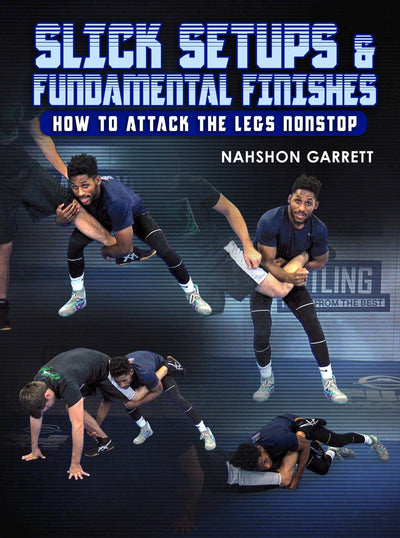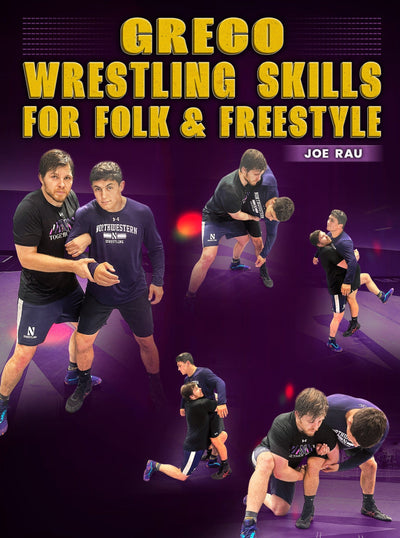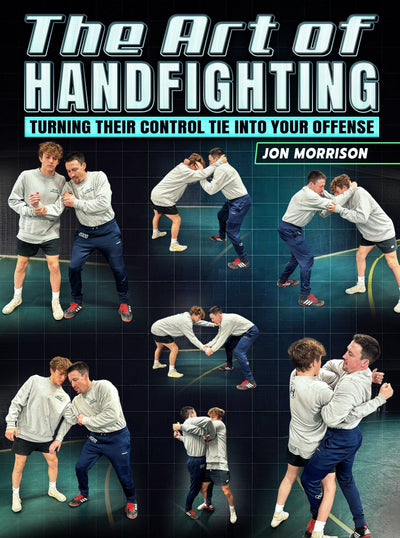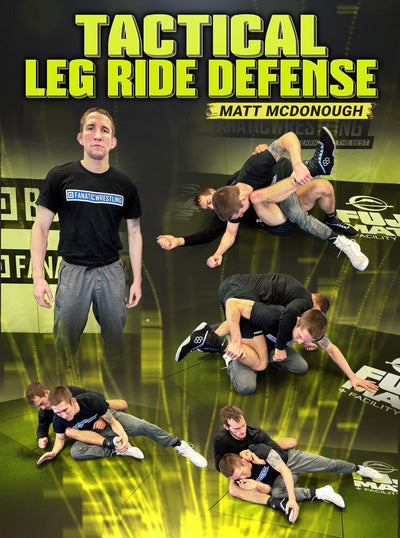Coachability: One of the Best Assests to Have as a Wrestler
Possessing Coachability: What Does it Mean?
Coachability, broken down in its simplest terms is basically how well and adept you are to being coached. This extends to tournament and dual meet time, as well as in practice and team building scenarios or projects. It is your desire and foremost responsibility to do what you know and/or think is right on and off the mat. It is also your ability to take criticism, whether it is constructive or otherwise, from your coaches for the betterment of your wrestling and development of your overall skill. We here at Fanatic Wrestling have preached about being coachable before, but usually it has been from a coach’s point of view. This one is strictly for the athletes. So if your coachability is lacking, you constantly feel that your coach is on to you, or sometimes you feel certain scenarios in and out of practice just aren’t fair, this one’s for you.
First Thing’s First, Let’s Be More Coachable
If you are hardcore about your progress in wrestling, one of the first things that should have crossed your mind after reading the intro above is hmmm how can I be more coachable as an athlete? Lucky for you, I’ve taken the hard work out and got a few easy ways for you to make it happen.
This one, even I’ll admit can be a little easier said than done. As a young wrestler I thought I knew my game plan, I thought I knew what was best for me, I thought my coaches were simply there to help guide what I already had going on. Well let me be the first to tell you, I was dead wrong. Coaches are there to guide you yes, but one of the only ways you’ll be able to fully develop your potential is to try new twists on some of your favorite moves. This is where having an outside set of eyes can really benefit you. We can’t see everything in the heat of the moment, so remember it is important to listen because your coach may see an opening for something that you don’t, and it could be a huge difference maker in your matches.
A good coach won’t just be there for you during meets and practices; they’ll also try their best to support you off the mat as well. Some of the best coaches I’ve ever had I am still in contact with to this day. They have helped me out with many life issues, networking and career opportunities, and have just given their advice on multiple occasions. Coaches aren’t just savvy when it comes to wrestling, most of them know a thing or two about life and that your hard work now definitely pays off in the long run. Keep that in mind the next time your coach is harping on you to do something, just do it, you’ll be better for it.
This one should be pretty self-explanatory, but let’s delve in anyway. Keeping a positive attitude, regardless of the situation can pay dividends not only to you but your teammates as well, and it speaks volumes about you to your current coach, and every one you’ll ever encounter. Keeping a positive attitude, even when things during meets or practices aren’t going well increases the likelihood things will get better sooner rather than later. When you carry a negative attitude, it prevents optimism and with it prevents any chance that you’ll give your full effort because you already feel that the battle is hopelessly lost. When you keep a positive attitude, you send that vibe to your teammates, and they feed off that energy. In a match, this could very well give them the will power to close the gap on a tough opponent, in practice when things get hard, they’ll see you pushing away at the work and think, man if he can do it and it sucks this bad, so can I. Keeping a positive mental state is one of the most important aspects in wrestling for these very reasons.
Want to update your FUNDAMENTALS? You might as well learn from an ALL-TIME GREAT! Click Learn More!
This includes things like skipping parties to make weight and get a good night’s sleep before a big day. This is remembering to adjust your meals and hydration, even though you want the juice, gets the water, even though you want the ice cream, get the veggies and lean meats. This includes getting up early before class to lift, get a run in, or some early morning drilling instead of sleeping in. This rule also pertains to some things we may not understand in the moment. Kind of like when your coach is trying to get you to go harder when you feel like you can’t go any more. Never be scared to go to that dark place where you feel unfamiliar, that is typically where the most progress happens.
Now that we’ve been through all of that, here is a section that will help some of you coaches out there see more success.
Ways Coaches Can Appeal To Their Athletes
This one is crucial. As a coach, salience is a very important part of your job. The athletes you coach have to believe that what you are having them do is beneficial and progressive to the goals they have in the sport. What better way to do that than to sit them down and say, you know what, you want this? I want it for you, here’s what we need to do to get it done. There aren’t many ways of connecting better with an athlete than a direct message on a common goal.
By now I am sure we know that visualization can be a very powerful tool, especially in sports, but also just in life in general. When your athletes question why you are having them do certain things, and don’t worry they will if they haven’t already, get them to see all the things they want to accomplish and then some. They want to win a state, national, world, or even Olympic title? Get them to mentally put themselves in that position, and ask them what they think someone with that title is doing right now to get better. Get them to visualize the process of becoming the person they want to be, once we’ve visualized it we can put it into action.
Empathy can be as equally powerful and important tool as any. One of the greatest deterrents of any athlete can be feeling like their coach just doesn’t identify with them at all. Hopefully you’ve paid attention to the blog because my first two steps should do a pretty good job at preventing that. When your wrestler or wrestlers get discouraged because of outside problems, performance issues, injuries, or any other host of issues, empathy is the key to overriding it. Having an “I’ve been there” response or attitude and then confiding a bit of your personal story with your athletes can go a long way.
Coachable Benefits And The Drawbacks Of Being Uncoachable
So far, we’ve touched on a few of the benefits of being coachable, and there are a few more, but it is important to remember that the benefits of being coachable transcend wrestling scenarios.
Benefits
Higher Chance of Getting Recruited- If one of your goals is to wrestle in college then your ability to be coachable is key. The wrestling community is a very close knit one and the closer you look, the more you realize if you’ve been around for a while, everybody knows everybody. Stories of what kind of athlete you are will be passed from coach to coach so always put your best foot forward, and perform as if someone important is watching. Win with humility, lose with grace and sportsmanship.
Higher Chance of Succeeding at a Higher Level- You definitely want to progress as much as possible if you plan on moving up the tiers of competition in wrestling. Your ability to be coachable can immensely increase, or decrease, the skills that you gain as you move on. The more coachable you are or become, the better your chances are of reaching your own goals.
Carries Over to Potential Jobs/Careers- Wrestling is a lot like a job, anyone who has competed at the collegiate level or higher will definitely vouch for that, and your coach or coaches are your boss. If you are uncoachable in wrestling, you are building negative habits for the rest of your life. We all have to take orders at some point in our careers. If you can’t be coached in a career you’ll be fired, which is a lot worse than getting yelled at or just running more sprints.
Drawbacks
I’m actually not going to put a whole lot of time into the drawbacks of not being coachable, as we have kind of done that through contrast already. You can pretty much assume the negative opposite reality of each of the benefits will happen.
The Dark Area
There is one drawback here that affects both sides of the coach/athlete relationship. There is a cold, sucky area of athletes that just cannot be coached. It sucks for us coaches for a few reasons. One, because in my experience, a lot of these kids have some awesome raw talent and with a little bit of coaching could be something really special, so it sucks to think what could have been. The second reason it really sucks is because we as coaches sometimes naturally feel like failures when we can’t get through to an athlete, even though in some cases we have exhausted all other possibilities. We must know how to deal with this.
In Conclusion
Athletes, listen to your coaches, always. Coaches, make it your duty to always try and be there for your athletes, and make yourself more approachable for the times they are in need. As coaches we sometimes forget what it was like to be in their shoes and how we felt back then. What can we do to make it more appealing to them to give their best? As far as our dark area with athletes that are uncoachable is concerned, all we can do is try our absolute best. Nothing will work 100% of the time, and as long as we give it our all we have to remember we aren’t at fault here. Follow the tools listed in this blog, and I guarantee, whether you are an athlete or a coach, your career will take a more positive turn and you’ll reap the rewards over time.
Fundamentals are crucial to success regardless of what level you are at. Chael Sonnen was one of the best wrestlers to enter into MMA, and he used his fundamental wrestling to get there! WRESTLING FUNDAMENTALS FROM THE BAD GUY BY CHAEL SONNEN HAS WHAT YOU NEED!









